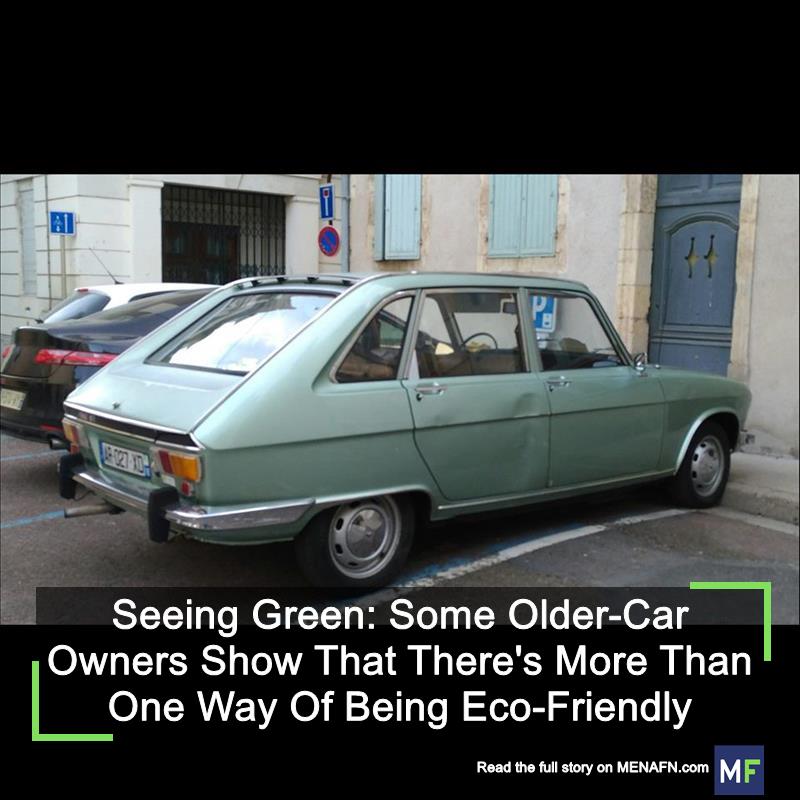
Seeing Green: Some Older-Car Owners Show That There's More Than One Way Of Being Eco-Friendly
Public authorities have been working to persuade residents to abandon combustion-powered cars in favour of electric vehicles. As of 2023, 20 EU member states offered incentives , and most of the other members have put tax incentives or exemptions in place.
A number of cities have established low-emission zones , which restrict access to vehicles that exceed a certain pollution threshold – leading examples include London, Paris and Brussels. Inspired by these and others, New York City is scheduled to start a “congestion pricing” plan in 2024 . Projections indicate that it could generate US$1 billion in annual revenues that will be used to improve the city's subway and bus systems.
In France, the 2021 “Climate and Resilience” law will require 33 urban areas with more than 150,000 inhabitants to start implementing low-emissions measures. Only cars that meet the latest ecological standards (mainly electric or hybrid) will be allowed in urban centres, and the restrictions are intended to be progressively tightened as technology improves.
While the production of electric vehicles produces greenhouse gasses, a 2021 study from the International Council on Clean Transportation (ICCT) found that the life-cycle emissions of battery-electric vehicles registered today will be significantly lower – nearly 70% in Europe and the US – than those of similar gasoline-powered cars. So the logic seems inescapable: out with the old, in with the new.
Making use of what already existsOur doctoral thesis in sociology , carried out between 2017 and 2022, explored the ownership and use of cars more than 20 years old. It revealed that, far from being hostile to the imperatives of sustainability, some owners of older vehicles were strongly committed to a certain idea of ecology.
Chantal's Renault Clio, 52 years old. G. Mangin, Fourni par l'auteur
In our research, we interviewed 40 or so vehicle owners and the vast majority expressed the importance of re-use as opposed to mass production and consumption. For them, it's about promoting an ecology that prioritises the use of functional (or repairable) tools over buying new ones. This was perceived as being more financially accessible and also responsible.
Redefining what is sustainable through an ethics of“care”Like any technical object, to function correctly and last, a car needs to be carefully maintained. Older cars often require constant attention, particularly safety-related components such as brakes.
Today, however, dealerships often no longer have the mechanics trained to work on older vehicles. Maintenance thus has largely become the responsibility of owners, who develop detailed knowledge that allows them to believe that their car will be with them for a long time to come. In so doing, they build an attachment to the car they look after .
Suspicion that the ecological transition is“greenwashing”Resisting the switch to a less-polluting vehicle is also a sign of scepticism about manufacturers' ecological intentions. For better or worse, electric vehicles are suspected of being far more polluting than they appear , in particular because their production requires the extraction of precious metals such as lithium or cobalt .
The Peugeot 205 of Mickaël, a 22-year-old mechanic. G. Mangin, Fourni par l'auteur
Electronic and digital equipment is also the subject of mistrust . The logic of early replacement is criticised and with it a perceived strategy of rendering past models obsolete.
Driving“less but better”Compared with more recent cars, those that are more than 15 years old are less comfortable, have fewer safety features and required greater attention from the driver. They necessarily have to be more observant and anticipate problems that can crop up.
Because such cars are at odds with the modern imperatives of efficiency, for their owners they become the ideal tool for keeping at bay the feeling of acceleration that characterises our era – they become a means to immerse oneself in“gentle” mobility that conjures up an imaginary world of contemplative travel.
Even more than goods and an economic system, those devoted to older cars use them to keep an entire system of mobility at arm's length. At the same time, many support an ambitious overhaul that would prioritise alternative forms of mobility, in particular the bicycle. They all say they would do without a car on a daily basis if they could.
The component of a restrained lifestyleFor some, driving an old car is a way of being mobile in a more restrained way, favouring quality (of the journey, of the object...) over a form of abundance.
This ethic of sobriety is often at the root of a more frugal lifestyle, and presupposes a reflective attitude to our actions and their consequences. While having everyone use“older cars” would be directly in contradiction with the ecological transition we face, the relationship of their owners to their mobility nevertheless invites us to take the road more seriously, especially in a context where almost half of the vehicles put into circulation are no longer owned but rented through short-term contracts.
This article was originally published in French

Legal Disclaimer:
MENAFN provides the
information “as is” without warranty of any kind. We do not accept
any responsibility or liability for the accuracy, content, images,
videos, licenses, completeness, legality, or reliability of the information
contained in this article. If you have any complaints or copyright
issues related to this article, kindly contact the provider above.


















Comments
No comment